Choosing a hotel can be such a headache. Few travelers want to settle for a roach-infested room but many are also reluctant to part with, say, NT$10,000 to NT$20,000, for a place to stay. That's the old guest mentality. The Sheraton Taipei Hotel has spent NT$2.4 billion on renovations in anticipation of the new guest mentality: A hotel is more than just a place to stay.
While the Sheraton's outer appearance hasn't changed much, the renovations begun in April 2003 have just reached completion. There is a new lobby, new restaurants and a new look for the rooms themselves, including two floors of new "executive" rooms, claimed to be the best in Taipei.
Once known as the Lai Lai Sheraton, the 26-year-old hotel is within walking distance from the Executive, Control and Legislative Yuans and has gained a reputation over the years as a favorite hangout for politicians.
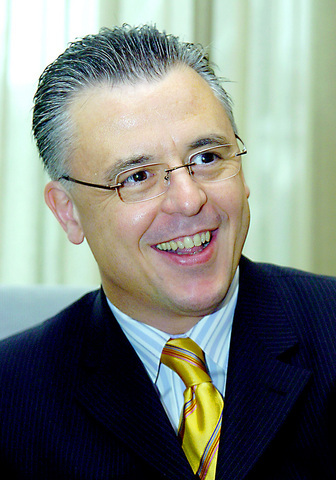
PHOTOS: SUNG CHI-HSIUNG, TAIPEI TIMES
Owned by the super-wealthy Tsai family, the Lai Lai became a hotbed of power and intrigue. In 1985, a Tsai-family financial scandal involving the Taipei Tenth Credit Cooperative and Cathay Plastics resulted in the hotel changing hands. In 2002, Tsai brothers Chen Yiang (
Austrian hotelier Josef Dolp was general manager of the hotel in the years leading up to the renovations. While they were underway, he served as general manager at the Sheraton in Xian, China. He returned to his post at the Sheraton Taipei this June.
"The Lai Lai Hotel had an old Chinese feel to it and the design was very local," said Dolp. "We did so much renovation that we also wanted to change the market mix and the kind of custo-mers we attract."
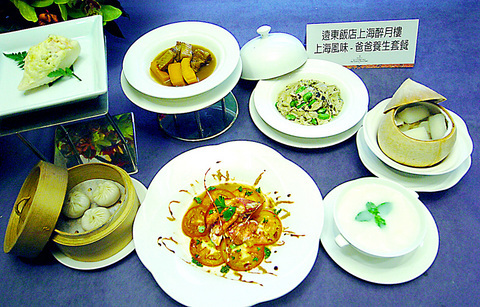
While Dolp acknowledged that his hotel's location meant political clientele would be a mainstay, he said the new target groups are international businesspeople and Taiwanese 30-somethings. This shift is reflected in the hotel's new look and feel, which is clean and structured, simple as opposed to busy, and focuses on functionality and timelessness. These are aesthetic virtues appreciated not only by international businesspeople, but also by young people, according to Dolp.
Owner Tsai Chen-yang and his wife Ellie Lai (
"Our hotel reflects the status quo of the story of Taiwan," Dolp said, pointing to the classical Japanese influence that is most apparent on the rigidly straight, elegant wood that lines bedroom walls.
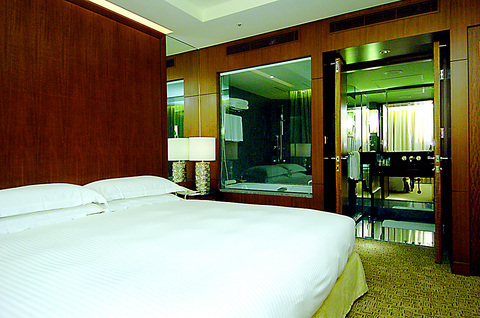
While a beautiful, comfortable interior is important, it is the process and the experience that will bring customers back and give the hotel a competitive edge, Dolp says.
The management has adopted an approach to service that centers on customer feedback instead of hotel traditions. While it is common practice for the bellboy to whisk away a guest's luggage the moment they check in, surveys revealed this to be an annoyance for many guests, especially businesspeople who want to have their work with them at all times.
The goal, Dolp says, is to make the hotel experience as efficient as possible while still maintaining a friendly, human touch. And despite the amount that was spent on upgrading the hotel's appearance, in the end it's the people and the experience that count for the most.
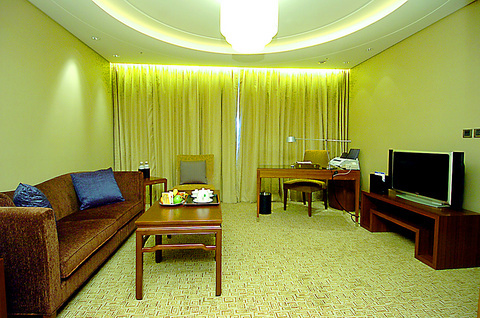
"It's like a one-night stand with a beautiful lady," Dolp said. "If you find out she's stupid, you won't sleep with her again. So we want to be a beautiful lady who is smart so you'll fall in love and come back over and over again."
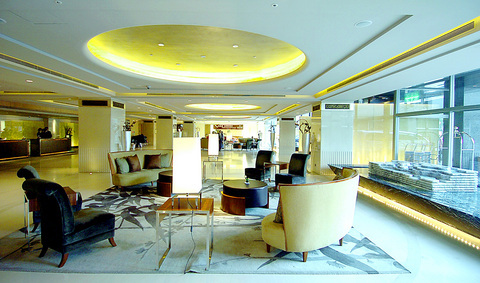

Towering high above Taiwan’s capital city at 508 meters, Taipei 101 dominates the skyline. The earthquake-proof skyscraper of steel and glass has captured the imagination of professional rock climber Alex Honnold for more than a decade. Tomorrow morning, he will climb it in his signature free solo style — without ropes or protective equipment. And Netflix will broadcast it — live. The event’s announcement has drawn both excitement and trepidation, as well as some concerns over the ethical implications of attempting such a high-risk endeavor on live broadcast. Many have questioned Honnold’s desire to continues his free-solo climbs now that he’s a

Lines between cop and criminal get murky in Joe Carnahan’s The Rip, a crime thriller set across one foggy Miami night, starring Matt Damon and Ben Affleck. Damon and Affleck, of course, are so closely associated with Boston — most recently they produced the 2024 heist movie The Instigators there — that a detour to South Florida puts them, a little awkwardly, in an entirely different movie landscape. This is Miami Vice territory or Elmore Leonard Land, not Southie or The Town. In The Rip, they play Miami narcotics officers who come upon a cartel stash house that Lt. Dane Dumars (Damon)

Francis William White, an Englishman who late in the 1860s served as Commissioner of the Imperial Customs Service in Tainan, published the tale of a jaunt he took one winter in 1868: A visit to the interior of south Formosa (1870). White’s journey took him into the mountains, where he mused on the difficult terrain and the ease with which his little group could be ambushed in the crags and dense vegetation. At one point he stays at the house of a local near a stream on the border of indigenous territory: “Their matchlocks, which were kept in excellent order,

Today Taiwanese accept as legitimate government control of many aspects of land use. That legitimacy hides in plain sight the way the system of authoritarian land grabs that favored big firms in the developmentalist era has given way to a government land grab system that favors big developers in the modern democratic era. Articles 142 and 143 of the Republic of China (ROC) Constitution form the basis of that control. They incorporate the thinking of Sun Yat-sen (孫逸仙) in considering the problems of land in China. Article 143 states: “All land within the territory of the Republic of China shall